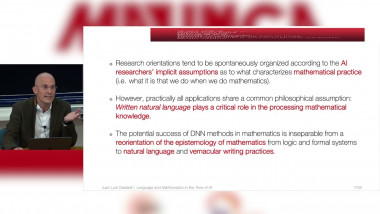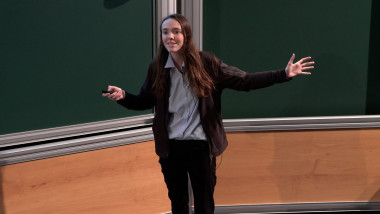
Language and Mathematics in the Time of AI. Philosophical and Theoretical Perspectives
By Juan Luis Gastaldi

Deciding What Game to Play, What Mathematics Problem to Solve
By Katie Collins
Appears in collection : 2022 - T3 - WS3 - Measure-theoretic Approaches and Optimal Transportation in Statistics
Many variants of the Wasserstein distance have been introduced to reduce its original computational burden. In particular the Sliced-Wasserstein distance (SW), which leverages one-dimensional projections for which a closed-form solution of the Wasserstein distance is available, has received a lot of interest. Yet, it is restricted to data living in Euclidean spaces, while the Wasserstein distance has been studied and used recently on manifolds. In this talk I will discuss novel methodologies to transpose SW to the Riemannian manifold case. By appropriately choosing a proper Radon transform, we show how fast and differentiable algorithms can be designed in two cases: Spherical and Hyperbolic manifolds. After discussing some of the theoretical properties of those novel discrepancies, I will showcase applications in machine learning problems, where data naturally live on those spaces.
